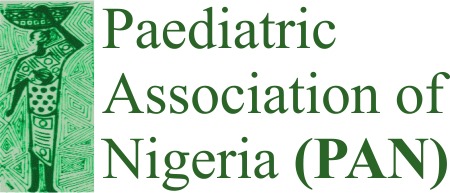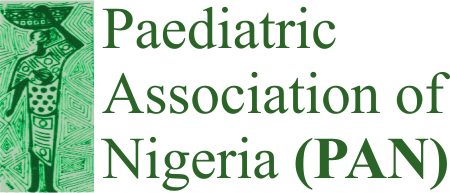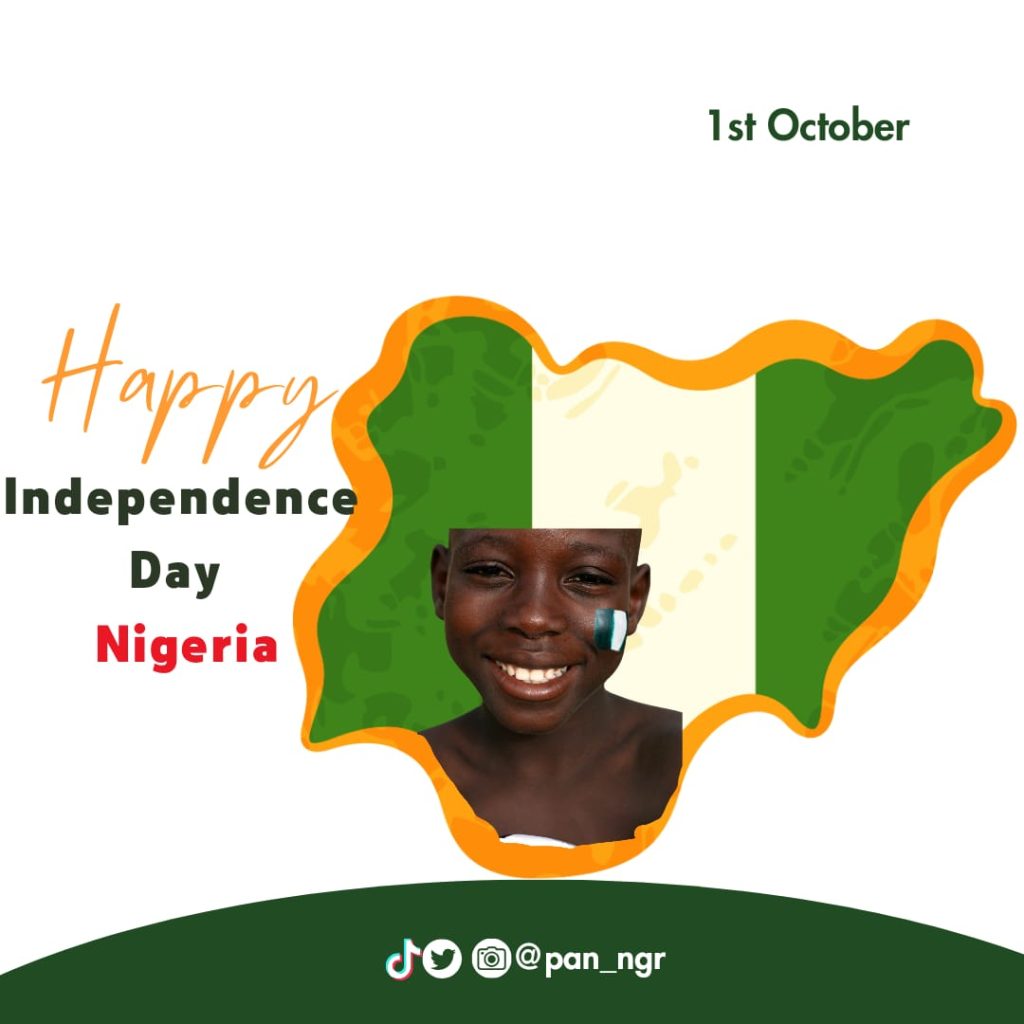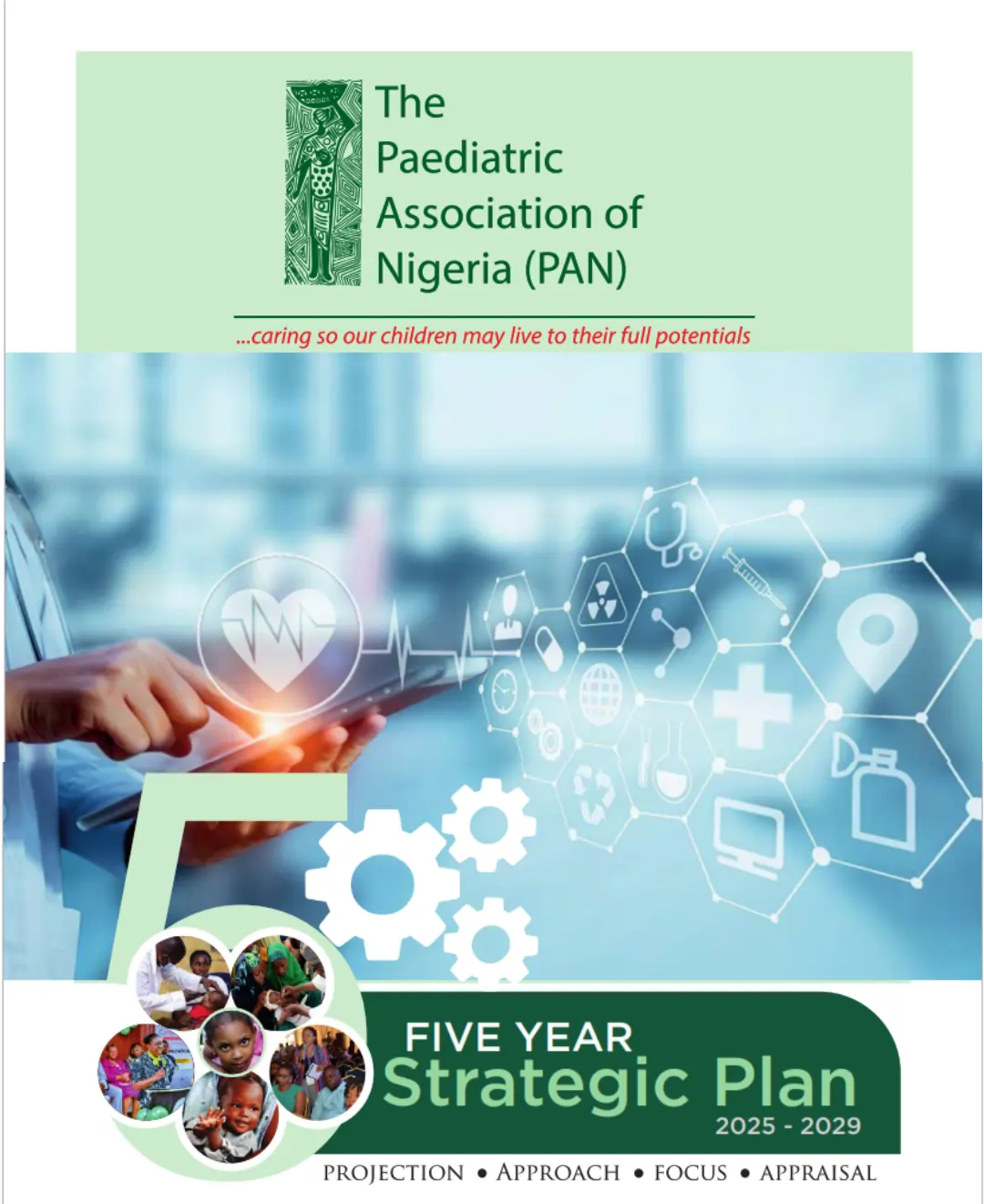THE STATE OF THE NIGERIAN CHILD AT THE 64TH NATIONAL INDEPENDENCE ANNIVERSARY
1st October 2024
The Paediatric Association of Nigeria (PAN), a body of professionals and allied stakeholders with interest in, and activities around the health, social and psychological well-being of Nigerian children and adolescents, celebrates with our dear nation, Nigeria, on the occasion of her 64th Independence anniversary. PAN also celebrates the Nigerian child as a hero of the moment as they are the leaders of tomorrow. The leaders and decision makers of today, were themselves, children as of 1960 when this land attained independence. Therefore, this celebration offers an opportunity to appraise the journey of nationhood as it affects the health and well being of the Nigerian child.
The state of the Nigerian child is assessed based on health indices and social indices that border on education and protection against societal ills. In Nigeria, over 10 million children are out of school with 68% literacy rate, about 15% of those aged 5-14 years are engaged in child labour and up to 20% of those aged less than 15 years have experienced teenage marriage. The Under-Five mortality and infant mortality rates in Nigeria have gradually declined from the 1990 values of 213/1000 births and 126/1000 births respectively to 117/1000 births and 74/1000 births in 2022 through a lot of hard work focusing on the leading causes of childhood deaths, particularly newborn conditions, infectious diseases (malaria, acute respiratory diseases, diarrhoea, vaccine-preventable diseases, HIV/AIDS) and malnutrition. However, a lot more needs to be done at these challenging times. At the present rate, one out of every thirteen children born in the country may not survive beyond the first year and one out of every nine children may not survive up to the fifth year. While we celebrate our collective efforts in getting more Nigerian children to survive, the current state of child survival is still undesirable when compared with the situation in the advanced parts of the world, hence a lot more needs to be done.
Added to this challenging situation are the recent events in the country which may cause further slips and dips in our previous achievements concerning the state of health of Nigerian children. PAN is not oblivious of the challenges our dear nation is passing through at the moment, following the huge declines in the global economy. In Nigeria, the economic difficulties got worse with the increase in fuel prices, rising exchange rates, dwindling purchasing power, rising unemployment rates and high inflation rates. Poverty which has been at the forefront of causes of childhood deaths in Nigeria seems to be gaining more prominence and except the government at all levels is pro-active, the health indices of the Nigerian child may get worse. The spill-over effects, aside outright starvation and poor living conditions and environmental uncleanliness, include inability to seek appropriate health care services for minor childhood illnesses. We have noted the gradual return of severe cases of malnutrition to our hospitals after the initial disappearance some two decades ago. We have also noted the re-emergence of previously controlled infectious diseases such as measles, diphtheria and cholera. These developments are all related to the fact that the earnings of most parents in the middle and lower socioeconomic classes of today have seriously dwindled and this has translated to poor access to good food and health care. As it is, children are worst hit by the whirlwind effects of the current national economic challenges. The inter-relationship between poor feeding and infections is well known and this explains the re-emergence of severe cases of childhood malnutrition in many parts of the rural and urban slum areas of the country.
PAN is aware of the import of the background of preexisting and growing security challenges in many parts of the country which has taken a huge toll on farming and food production. The problem of insecurity is also a major threat to economic growth and financial strength of families. In addition, at this moment, many children are either in captivity in the most inhumane conditions or have their parents in captivity, courtesy banditry and kidnapping. Affected children are deprived of the opportunity to grow and develop within a functional family system where they are shown love and affection and have the opportunity for safe play activities. All these are required for the optimal growth and psychological development of children. PAN is worried about the likely ultimate effects of these situations on the way the affected children may likely turn out as adults in the future.
Beyond childhood, PAN is also worried about the spreading scourge of addictions among adolescents and youths. The damaging effects on their health as well as the predisposition to crime and social vices are notably essential. The economic difficulties and the attendant haplessness may appear to be one of the trigger factors for substance abuse and other addictive tendencies as they seek pleasure out of the perceived difficulties. However, the vicious cycle will have effects on other aspects of life involving them, their immediate families and the societies at large.
Nevertheless, PAN congratulates the Nigerian government and other stakeholders for the successful eradication of the wild polio virus. Other killer vaccine-preventable diseases such as pneumonia and diarrhoea also need to be tackled with greater vigour. Unfortunately, Nigeria is one of the countries noted for low vaccine coverage for common childhood disease for various social, cultural and health system-related reasons. PAN has made several statements about the “zero-dose” children who have never been immunized as they are in hard-to-reach parts of the country and the need to make them a focus of vaccination attention. The currently unacceptable National coverage rate of 57% may likely decline in the months to come as a result of the current challenges. Some parts of the country recently witnessed natural disasters, particularly flooding, wherein thousands of people (including their children) were displaced. It is expected that immunizations may not be optimal for a while in the areas concerned and that will contribute to further dips in the vaccine coverage rates. PAN is worried about the import of this set back, particularly the resurgence of infectious diseases, like we recently witnessed with measles and diphtheria.
It is important to note that PAN has keyed into the global drive to protect the girl child against the Human Papillomavirus infection which has been strongly linked with cervical cancer in women later in life. The Human Papilloma Virus Vaccine is currently available, and advocacies are currently ongoing all over the country to support the vaccination drive. PAN appreciates the huge supports received from the government as well as our international collaborators on this project. PAN is also hopeful that the malaria vaccine which has been made available for clinical use in other parts of the developing world will soon be available in Nigeria where the Nigerian child will be the biggest beneficiary as malaria currently contributes close to a quarter of under-five childhood deaths.
PAN commends the Nigerian government on the various on-going efforts at reducing the impact of the ensuing economic hardships on the well-being of families. It is also desirable to appeal for more concerted efforts at stabilizing the currency and improving the purchasing powers of families. The recent increases in the minimum wage for government workers is commendable but it may be advisable to tie such awards to increase in productivity of goods and services to stem accompanying inflation. The pattern of distribution of essential food
commodities as reliefs, particularly grains, to families need to be reviewed to prevent the “middleman” effect which still makes the food commodities unavailable to the desired end-consumers. The various cattle ranches across the country may be explored for the production of fresh milk which will boost the nutrition of young children within their locality. PAN also wishes to encourage the various governments to double up on their efforts to rid the land of banditry and other forms of insecurity. This will contribute to economic stability, allow better family finances, improve school enrolment and even allow children the opportunity to play, which is crucial for their optimal growth and development.
PAN wishes to encourage the government to embark on incentivised school enrolment and improve on the existing school-meal programs. The Al-Majiri School system may need to be re-invigorated for better impact. These ideas may need to be institutionalized to ensure sustainability across government tenures.
As a way of addressing the growing inequality in health resources distribution, PAN wishes to encourage the government to improve the funding of the National Health Insurance Scheme and widen its scope with respect to the provisions made for Nigerian children. The scope needs to be widened to reach a greater proportion of Nigerian children, particularly those in the lower socioeconomic classes and those whose parents are not government employees.
While PAN celebrates the tenacity and hope in the Nigerian child and celebrates with Nigerian children on this occasion of the nation’s 64th Independence anniversary, PAN hopes that the government will continue to pay stringent attention to the health, social and psychological needs of Nigerian children.
Long live the Federal Republic of Nigeria!
Long live the Paediatric Association of Nigeria!!






